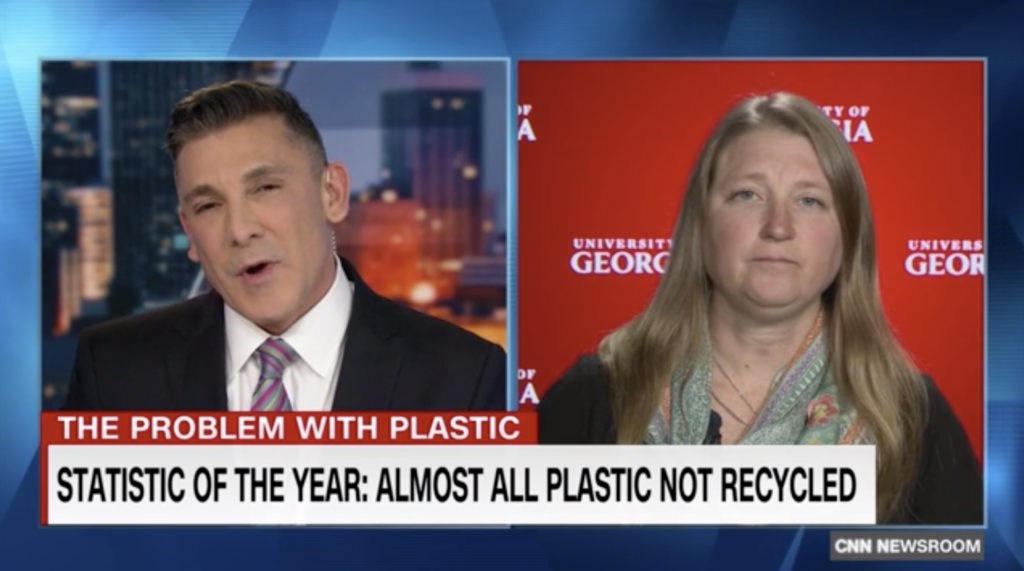A finding from University of Georgia research has been named the 2018 International Statistic of the Year by the Royal Statistical Society. CNN International interviewed the College of Engineering’s Jenna Jambeck, who worked with colleagues at the University of California, Santa Barbara, and the Sea Education Association on the groundbreaking research.
More than 90 percent of plastic has never been recycled, according to the research. Prior to the research, it was unclear exactly how much plastic was ending up in landfills or, even more problematic, in oceans and forests around the world. The new statistic lends a sense of scale to the problem of global plastic pollution.
“This statistic illustrates that many of the characteristics of plastic that make it so useful — it’s light-weight, can be any color and shape with additives — also can reduce its value at its end of life and make it difficult to manage in the waste stream,” Jambeck said. “It often ends up unrecycled or mismanaged and ends up in our ocean. Besides reduction where appropriate, we need to design products and materials proactively to work within our waste and materials management systems.”
Jambeck’s previous work includes a 2015 study that was the first to estimate how much of the plastic waste produced on land made its way into the world’s waterways. Her follow-up two years later determined the amount of plastic produced worldwide since large-scale production of the synthetic materials began in the early 1950s.
Her research in 2018 also illustrated that half of the plastic meant for recycling from around the globe was being exported to China, until China ended this practice — creating even more challenges for the global recycling industry.
To learn more about Jambeck’s work, read her Great Commitments story.
